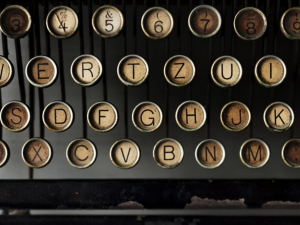Wordsmithing
 I used to teach fourth grade. Very early in each school year, I addressed one of my pet peeves, a common fourth grade error. I put the words “A lot” and “Alot” on the board and X’d out the second incorrect option. It amazed me how many students insisted that the one-word form was correct.
I used to teach fourth grade. Very early in each school year, I addressed one of my pet peeves, a common fourth grade error. I put the words “A lot” and “Alot” on the board and X’d out the second incorrect option. It amazed me how many students insisted that the one-word form was correct.
I always thought of myself as a decent grammatist. If there’s a misspelled word or punctuation error on a page, I can typically spot it. However, the last few years have humbled me as I’ve learned how much I don’t know. Let me share a few tidbits that I’ve discovered.
Scads of information have been printed on confusing duos like accept/except, advice/advise, all right/alright. I won’t repeat those. Instead I’ll talk about common words that have caused me to pause and ask questions.
Now, as you read these, the true grammarians are yawning wondering how it is that a writer didn’t know this. Please don’t be too judgemental. Or is that – judgmental?
Judgment without the extra e is more widely accepted in American English. Those in the UK are likely to use judgement. Either is correct, but if you reside in the good old USA, best to drop the e.
Speaking of the letter e, Brits use it to spell grey. Americans trade the e for an a, and you have gray.
Gray? I happen to be a brunette (maybe with a few gray streaks), but you may be a blond. That is, if you’re a male. A female towhead would be a blonde. Now here’s the confusion—the final e denotes gender only when it’s used as a noun. All adjectives use the male counterpart, blond.
Example: My sister is a blonde. My brother is also a blond. Both have blond hair.
Any writer of contemporary fiction will be using the word cellphone—or should I say, the words cell phone. We can’t look to the UK on this one. They typically call them mobile phones. The origin is the term cellular phone, but we’ve shortened it for convenience. In 2011, the Associated Press announced that they would be changing cell phone to cellphone. I’m not sure that trend caught on because one year later, Google reported the usage of cell phone more than three times the counterpart, cellphone. I tend to use the two-word format. Either is accepted, just be consistent.
Here’s one with four options. T-shirt, tee-shirt, t-shirt, and tee shirt. Do I use T or Tee? Do I use capital or lower-case letters? Do I hyphenate? T-Shirt with a capital letter and a hyphen is the most widely used form. Here’s an easy way to remember—the shirt was named for its shape, the capital letter T.
Have you learned anything new yet? Okay, let me try this one. OK is a term that sprang to life in the 1800’s as a shortened form of all correct. Yes, in our minds that should be AC, but it was derived from the Dutch two-word phrase, orl korrect. I like the form okay because it looks more like a word than an abbreviation. However, the Associated Press recommends OK. The Grammar Girl, Mignon Fogerty, insists on the use of OK according to her post, “Is OK Okay?” She states that it’s the purer form.
So, fasten your seatbelt. A man with blond hair, wearing a gray T-shirt, didn’t use good judgment when he said it was OK to drive while talking on his cell phone. There! See how much I’ve learned in three years.
These are six of many that I’ve questioned. I hope this clarification has helped. And, yes, I know that wordsmithing isn’t a real word.